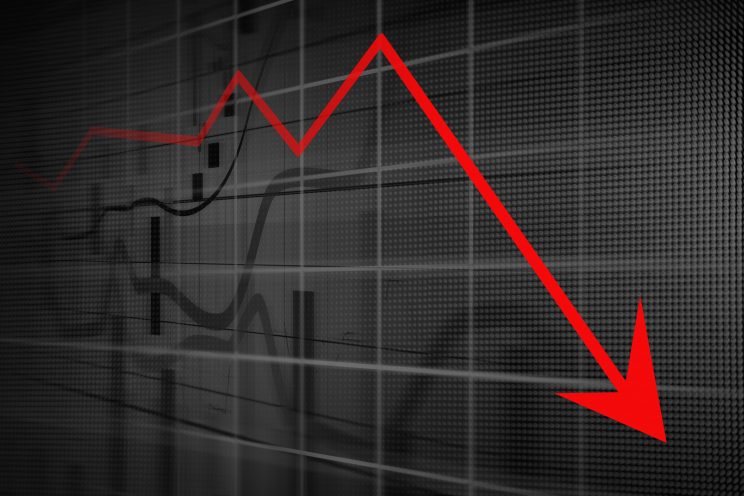SA Inc sell-off continues as nearly 50 shares hit 52-week lows

The sell-off of so-called SA Inc shares listed on the JSE has accelerated, with no fewer than 48 stocks hitting new 52-week lows since last Monday.
All but three of the companies on the list derive all – or a substantial proportion – of their earnings from operations in South Africa.
The list of companies spans all sectors of the economy: retail, manufacturing, food producers, financial services, property, mining, and telecoms.
Among the more well-known names are Growthpoint, ArcelorMittal South Africa, Zeda, Telkom, Mpact, Mr Price, Redefine, Cashbuild, Blue Label Telecoms, Italtile, JSE Limited, Altron, Pepkor, MultiChoice, Thungela Resources, Pick n Pay, and Dis-Chem Group.
Perspective
Piet Viljoen, who manages the Merchant West SCI Value Fund, says that while “the market for SA Inc stocks is at low levels with a lot of negative emotion around, that doesn’t mean it is at a bottom”.
For weeks on end, the list of stocks being sold down has almost entirely comprised of small caps (shares outside the top 100), with a handful or two of mid-cap (R10 billion-plus market cap) stocks.
Recently, however, a number of JSE Top 40 counters are also hitting 52-week lows, including Capitec, Clicks Group, Exxaro, Sibanye-Stillwater and Vodacom. Four of these shares touched an intra-year low on Wednesday; Vodacom was the exception.
Vijoen believes it is “a sign of capitulation when even the market’s favourites start getting sold off”.
“It likely means we’re closer to the bottom than we were when just the small caps were being sold off.”
Foreign investors not too perturbed
Even as the sell-off of domestically focused companies gathers steam and the currency blows out, the demand for JSE-listed assets from foreign investors has held up relatively well.
Offshore investors ‘only’ sold a net R233 million of JSE equities last week – far lower than the R1.6 billion in the prior week. They have sold a cumulative R24 billion in domestic equities so far this year with net sales in 14 of the 20 weeks thus far. Last year, foreigners sold a net R84 billion of equities.
Rising interest rates, lower prices for key commodity exports, constant load shedding (often at severe levels), a far weaker currency, a possible/probable recession this year and the recent greylisting of the country by the Financial Action Task Force offer many, many reasons to be bearish on the outlook for economic growth in the country.
For SA Inc-specific stocks, catalysts such as a more positive socio-political environment, solutions to the energy constraints faced by the economy, or an external change in the global economy could all change sentiment and propel the market higher.
It remains impossible to call the bottom, however.
“Generally what happens is that six months later, you notice the market is up and people start being more optimistic and all the economists will give you very good reasons why that is the case,” says Viljoen.
Good for some
Almost paradoxically, though, investors ought to be appreciative of the current negative milieu.
“For a long-term investor, if you buy when stocks are reaching new lows and sentiment is very negative, the odds are on your side that you will do well,” says Viljoen.
This argument echoes that made by John Biccard in a recent excellent and provocative column.
He cites Nedbank as an example of an SA Inc stock that now has a dividend yield of 8%. This, he says, “can cover a lot of bad outcomes and we would argue that while this valuation doesn’t discount the case that South African equities become Zimbabwe or Sudan, it certainly discounts no improvement ever in South Africa’s long list of problems”.
He hypothesises that “foreign selling is exhausted and local selling is 80% done”.
What is the local investor to do?
Investors would do well to think about current valuations very carefully.
South Africans generally panic about taking their rands offshore when the currency is at its weakest, when they should be doing so at precisely the opposite time.
Yet they are only too happy to be buying any of the market darlings when they are trading at all-time highs …Still, Viljoen says that “South Africans should, at all times, have a significant proportion of their investments offshore”. But this doesn’t mean they must have 100% of their investments outside of the country.
“During negative times like this, when the rand is very weak and SA Inc stocks are at low levels, you can have a slightly higher proportion onshore than you otherwise would have.
“Again, the odds favour good outcomes over the medium to longer term.”

